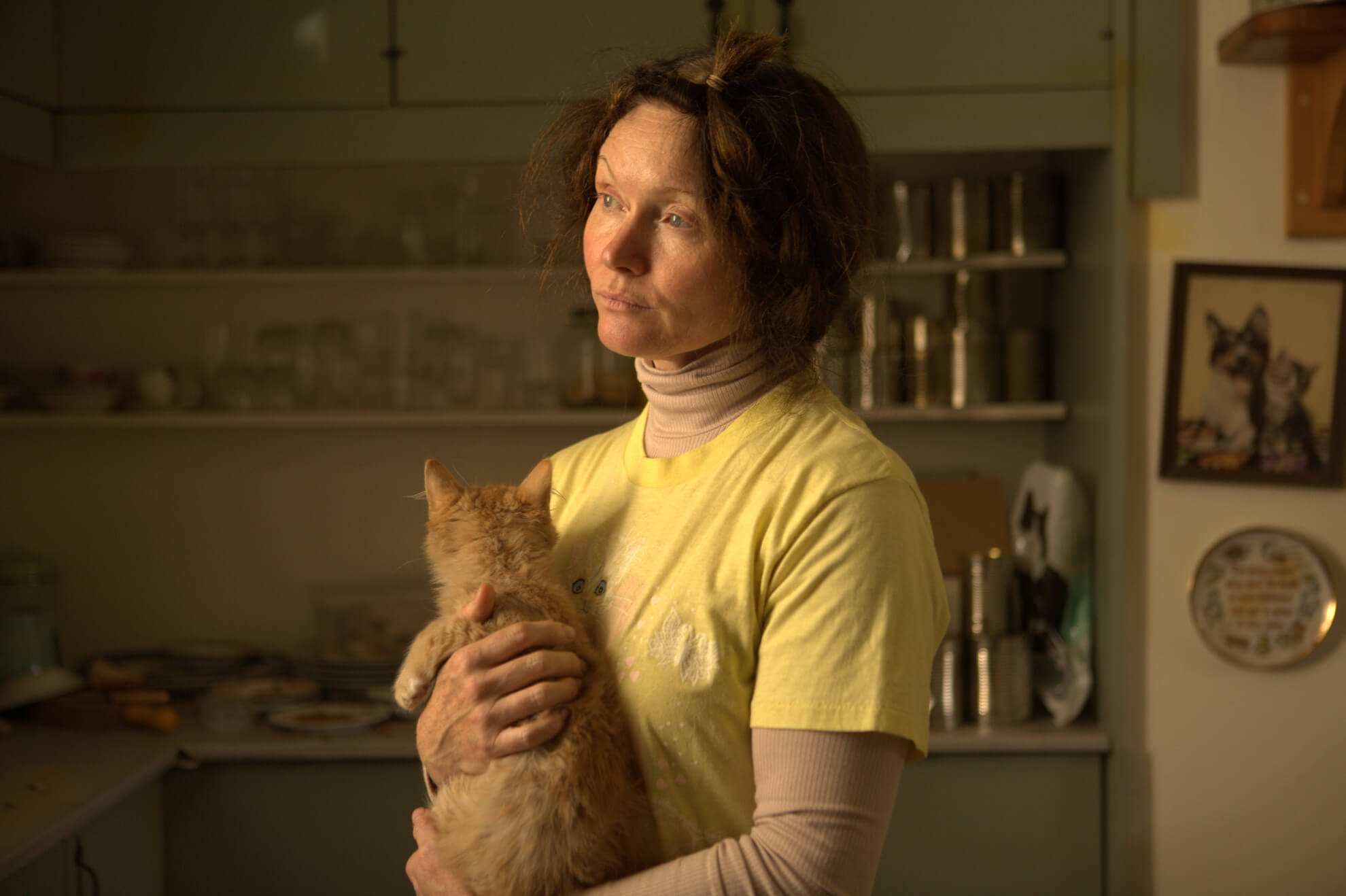Nitram is the 2021 film that explores the events leading up to the 1996 Port Arthur tragedy to understand why and how the atrocity occurred. Directed by Justin Kurzel from a screenplay by Shaun Grant, Nitram takes a concept that many would object to and manages to tell a stealthy moralistic tale on the dangers of unchecked behavior. Throughout the film, the titular character Nitram is confronted with the negative consequences of his actions, and he refuses to heed their warnings. Instead of condemning him from the start, the film gives the viewer a chance to witness how things could have gone wrong. It offers up a chance to show that generations of failings can lead to one individual's fateful decision.

All About Nitram: Caleb Landry Jones more than assures the price of admission with his performance in Nitram. His long, flowing hair and surfer-like mannerisms act in pale contrast to the angered internalizing of emotion his character goes through in the film. It is successful in painting a portrait of a misunderstood soul with little to no guidance in life, led down the paths towards the wrong interests ultimately by his own doing and refusal to accept authority. Nitram's life as it begins in the film feels adjacent to the poverty-stricken wastelands, like Harmony Korine's Gummo. He doesn't understand how to relate to his age group and can't take parental orders or any constructive criticism at all — to him, they're just barriers to a solitary, hedonistic lifestyle he finds most fulfilling. He acts in spite of those around him. It's exemplified in two separate relationships, the one he has with his parents, and the other he develops with a lonely, retired performer. His home life is where we see the most compassion come through Nitram, however, his father has lost patience with a real-estate dream and an unruly offspring — both of which are spiraling out of control. Nitram's mother dulled by this oppressive sense of futility is an example of the origin to where Nitram has developed his twisted moral code. It spills over into his relationship with Helen, the reclusive animal, a person so starved of human affection that she becomes intoxicated with the idea of encouraging Nitram, either by buying him gifts or inviting him to stay with her. Yet, it isn't long before Nitram's social failings come between the two, and the entire experience takes the expected dark turns.
![Nitram (2021) Film Review [Spoiler Free] (1) Image of Nitram (2021)](https://borrowingtape.com/wp-content/uploads/2022/04/Nitram-2021-Film-Review-Spoiler-Free-1.jpg)
A Charmed Life: What's most striking about Nitram is the way it's presented, with exceedingly warm and windy cinematography that sells this particular side of Australia as something of a paradise. It's the type of cinematography you'd expect from a film about personal growth. You're expecting Nitram to see the error of his upbringing, no matter who is at fault, and rise above it. You're expecting to find happiness through Caleb Landry Jones's infectious smile and naive urge to always be having fun. The camera is almost always moving, showcasing golden sunsets that almost feel like they unfold over the entire day. The settings aren't particularly urban — injecting a sense of calm as this story plays out amongst the tall Australian grasses and lonely highways. In many ways, the tension is nonexistent, and it's a fine choice because it's about as obfuscated as it can be. I like how the filmmakers aren't leading you towards a particular conclusion, other than what's historically relevant. To dramatize why someone may feel compelled to take matters into their own hands is more in line with what cinema has offered viewers across a host of other fictionalized accounts of real-life murderers. Many people understandably are going to consider Nitram to be tasteless just by existing, but in practice, it doesn't feel irresponsible.

Nitram won't put to rest decades of agony caused by its particular inspiration, and it's fair to judge it on account of its emphasis on the perpetrator and not the victims. Nitram believes that we're all ultimately victims of circumstance — the film's somewhat unsympathetic attitudes towards Nitram's lesser, odious behavior act as a reminder that we are all in control of our destinies. It is up to every person to respond to personal hardship with integrity and care for the human experience. Of course, it's easier said than done, and none of us can control what the other does with their own lives.

Watch Nitram now
